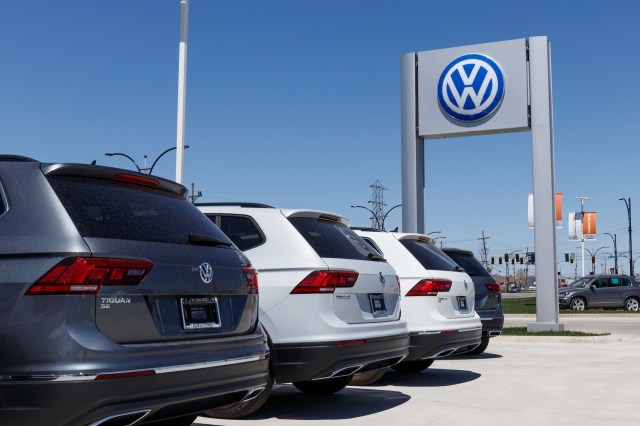Volkswagen Surpasses Tesla in EV Race with New Model Momentum

Volkswagen's Rise in the Electric Vehicle Market
Volkswagen has been making significant strides in its transition from gas-powered vehicles to electric vehicles (EVs), and this shift is paying off with impressive sales growth. The year 2025 has marked a milestone for the automaker, as it continues to solidify its position in the EV market.
According to recent reports, Volkswagen’s share of the electric vehicle market in Germany, Europe's largest automotive sector, now stands at 49%. This represents a 32% increase compared to the same period last year. In the first half of 2025, Volkswagen Group brands secured four of the top five spots for EV sales in Germany, highlighting the company’s strong performance.
Volkswagen has attributed its success to the launch of several new models that have captured consumer interest. “The Volkswagen Group continues to have strong momentum thanks to many newly launched models,” the company shared. “This applies especially to all-electric vehicles, with global deliveries up by around 50% in the first half of the year compared to the same period last year. This trend was particularly strong in Europe, with growth of around 90%. One in five of the vehicles we delivered in Western Europe is now purely electric.”
In contrast, Tesla has seen a decline in popularity across Europe. Recent survey data indicated that in June, Tesla sold only 1,860 cars in Germany, signaling a shift in consumer preferences.
Why Volkswagen’s Success Matters
Volkswagen’s success in the EV market underscores a broader trend of increasing electric vehicle adoption. As demand for EVs grows globally, innovative automakers are offering more choices to drivers, making it easier for consumers to transition away from gas-powered vehicles.
For years, Volkswagen has been challenging Tesla, not just through competition but also through strategic moves that appeal to a wider audience without the controversies often associated with other brands. For instance, Volkswagen has been improving its EV technology to make its batteries more sustainable and safer for drivers.
While brand popularity can fluctuate, the most critical factor remains getting more EVs on the road to replace polluting gas-powered vehicles. This shift is essential for reducing carbon emissions and promoting environmental sustainability.
The Future of Electric Vehicles
As the EV market continues to evolve, there are growing efforts to support its expansion worldwide. Various reporting agencies keep the public informed about EV trends, including which automakers are leading or lagging behind. These reports can influence consumer decisions and provide insights into emerging EV options.
Governments around the world are also taking steps to encourage EV adoption. Incentives for driving and investing in electric vehicles, along with investments in charging infrastructure, are helping to accelerate the transition. Additionally, national investments in clean, renewable energy sources like solar and wind power are reducing reliance on fossil fuels and supporting the growth of the EV industry.
In Germany and beyond, Volkswagen appears to be on the right path to secure a strong customer base and demonstrate the benefits of EV ownership. As more consumers consider switching to electric vehicles, the company’s success serves as a positive example of what is possible when innovation meets consumer demand.
Making the Switch to Electric
Choosing an electric vehicle as your next car can be one of the best decisions you make. It helps save money on gas and maintenance while eliminating exhaust fumes and contributing to a cleaner, greener planet.
Would you be more likely to drive an EV if you could charge it in 5 minutes?
- Yes
- Depends on the cost
- No way
- I already have an EV
Click your choice to see results and share your opinion.
The transition to electric vehicles is not just about technology; it's about making a difference for the environment and future generations. With continued advancements and support from governments and consumers alike, the road to a more sustainable transportation system is becoming clearer.